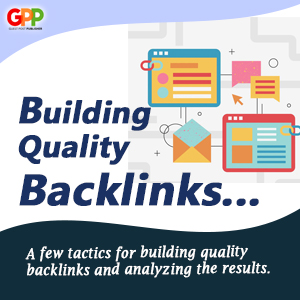The most appropriate and effective marketing tactic is link development. But link building can also work against you if you’re not careful. If you don’t know how to recognize it, link building might have a negative side that could harm your company’s exposure and reputation.
Introduction
The link’s inclusion and presentation can immediately increase brand visibility and help you establish a reputation in your sector. Additionally helpful for search engine optimization (SEO), link building raises your authority in Google’s and other search engine views.
You may find and assess each link currently pointing to your website with the aid of the backlink checker. You can view your present position about your competitors using another website rank checker tool. When you enter your domain, a lengthy list of all the links going to it and their sources will fill. Here, you may assess the current state of your link-building campaign’s effectiveness and spot any links that might be troublesome. This can help you narrow down the list and pinpoint the issue’s root cause, which is especially useful if you know that you have received punishment or been demoted.
The potential for penalties for link building
What then is the negative aspect of link building? Put discipline. Google and other search engines will consider your link building unethical if you do it incorrectly or unnaturally. You risk weakening your authority and losing your position in the search results if you are discovered purposefully manipulating your search rankings or degrading the user experience in other ways. Search. In other words, your SEO effort will suffer more harm than good from your actions. You’re seriously harming your brand’s reputation rather than deliberately undermining any advantages you may otherwise have.
As a result, other businesses can deliberately harm your brand by employing dubious link development techniques. Negative link building is what this is, and it’s essential to watch out for.
Avoid fines by being proactive.
Avoiding fines proactively is the most excellent method to steer clear of the negative aspects of link building and maximize your strategic potential.
- Establish a sound plan of action: Start with a sound plan before creating a unique link. It would help to comprehend Google’s and other search engines’ link-building processes and policies. You must know the requirements for creating high-quality, natural links and be willing to adhere to them. To ensure that you never risk creating a questionable link that harms your reputation, you should also have a written approach to which all of your workers or contractors must adhere.
- Cooperate with proven partners: Many businesses find it challenging to develop links independently, partly because it requires a lot of knowledge and time. Instead, they turn to contractors and building organizations for assistance. This can be quite advantageous, but if you pick the incorrect partner, it could potentially backfire. Always thoroughly vet your partners and pick those who will use ethical link-building strategies.
Why is a link “Bad”?
So what precisely goes wrong with a faulty link? What distinguishes a link that benefits your business from one that hurts it?
Here are the elements that, on a personal level, typically make a link problematic:
- Unnatural, confusing link text: The context of the post must match the anchor text. The link is unlikely to be effective if it is evident that your anchor text is nothing more than an SEO term.
- Not at all related: The links you create should be pertinent to your target demographic and offer the reader more knowledge or pleasure. The link will be withdrawn, or you will receive a penalty if it has nothing to do with the article’s content or publication.
- An unusual setting: The same holds if you unusually put your connections. It may have been commonplace 25 years ago to have a bare hyperlink without any anchor text, but this is not the case anymore.
- Covert redirection Additionally, you should exercise caution when using covert redirects because Google and other search engines dislike it when you astonish your visitors by leading them in a surprising direction.
Lastly,
Link building is a potent and advantageous tactic—but only if you apply it sensibly. Fortunately, by making a few simple changes to your technique, you may avoid the majority of penalties and benefit more from your link-building efforts.










